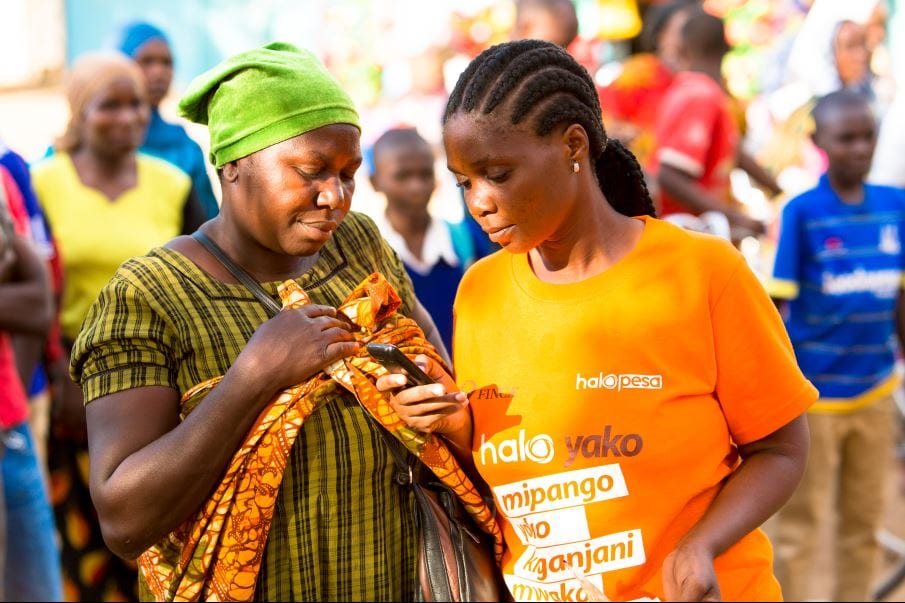For Responsible Financial Inclusion, We Need to Encourage Saving
While the World Bank’s Findex 2017 shows progress toward achieving financial inclusion, the global savings rate is still lagging behind. FINCA Impact Finance is taking bold action to close that gap.
The World Bank’s Findex 2017 indicated tremendous growth in financial inclusion over the past three years. 515 million people have gained access to formal financial services since 2014, with the total number of unbanked falling from 2.1 billion to 1.7 billion. Sixty-three percent of adults in developing economies now have a bank account, up from 55% in 2014 and 42% in 2011.
Moreover, digital technologies have the potential to help close the remaining gaps in financial inclusion, in particular through mobile banking. Among the world’s remaining unbanked adults, roughly 1.1 billion have a mobile phone. In Pakistan alone, more than 100 million unbanked adults are now mobile-ready.
This means there is tremendous opportunity to deliver financial services through mobile channels. In Sub-Saharan Africa, the corner of the globe most in need of financial inclusion, more than 10% of adults now have a mobile money account, the highest rate in the world. The proliferation of affordable mobile phones, expanding 3G and 4G networks and new mobile banking products will only accelerate this trend.
But as impressive as growth in financial inclusion has been over the past three years, glaring gaps still remain. Savings is one area where responsible banking institutions and Fintech innovators need to pick up the pace of positive change.

How Can We Expand Responsible Financial Inclusion?
While 63% of developing country adults now have access to formal banking services, only 43% saved money during the 12 months leading up to the Findex 2017 survey—that’s down from 53% in 2014.
That trend is disappointing, for a number of reasons.
It’s proven that when more people save money at formal financial institutions, positive economic effects follow. A 2014 study of market vendors in Kenya showed that after opening a formal savings account, vendors saved more and, on average, invested 60% more in their businesses.
A 2009 working paper published by Harvard Business School found that in developing countries, higher rates of saving lead to faster adoption of innovative technologies and higher productivity growth—factors which result in better economic outcomes overall.
At the household level, savings put individuals, families and communities on firmer financial footing, leading to more stable, sustained economic development—which is the ultimate goal of efforts toward responsible financial inclusion.
Recognizing the global savings gap is an impediment to responsible financial inclusion, FINCA Impact Finance is taking measures to promote saving in the markets in which it operates.
FINCA Takes Deposits, Too
Traditionally, microfinance has been viewed as synonymous with “microcredit”— issuing small loans to low-income entrepreneurs to enable them to expand their businesses.
Microcredit is still a big part of what FINCA Impact Finance does. But as the company has grown—and as financial markets have become more sophisticated—many of its 20 subsidiaries around the world have evolved from microfinance institutions into deposit-taking institutions that offer a full menu of responsible financial services.
Twelve of FINCA’s subsidiaries are now licensed to take deposits. This reflects both growing customer demands for savings products and the company’s own internal evolution. Worldwide, FINCA is holding $379 million in total deposits against a total loan portfolio of $790 million.

Fintech Innovation Can Help Boost Saving
Fintech innovation, when used intentionally, can also catalyze higher rates of saving. Tanzania is a country where 48% of adults reported saving in 2017, roughly equal to the global average. There, FINCA’s subsidiary, FINCA Microfinance Bank, launched HaloYako–a mobile banking product designed to encourage users to save.
HaloYako is accessible via feature phone and allows FINCA clients to create and manage savings accounts on the go. Users can create a savings account in just minutes and earn free mobile airtime as they reach savings targets, providing an extra incentive to save.
Olaf Becker, FINCA Microfinance Bank’s chief operation officer, had this to say:
“The foundation of building a trusting, long-term financial relationship with our clients is based on savings rather than credit. While not offering the same financial immediacy as loans, there is a far more universal need for saving products that mitigate our clients exposure to over-indebtedness and financial shock.”
More than 100,000 people used HaloYako during the first six months after its launch in 2017, and it’s just one example of how FINCA is using Fintech innovation to better serve its customers.
FINCA is Encouraging its Clients to Save
FINCA Impact Finance’s subsidiary in Kyrgyzstan, FINCA Bank Kyrgyzstan, is working to promote saving through its financial literacy programs. FINCA Bank Kyrgyzstan is managing a range of initiatives to teach people about basic financial principles, including the importance of saving. Financial literacy trainings are available to clients and other residents of the communities we serve.
FINCA’s efforts to promote saving don’t stop there. In Georgia, the company’s subsidiary, FINCA Bank Georgia, is also redoubling efforts to promote saving. In 2016, FINCA Bank Georgia launched “My School Book” with support from the Ministry of Education of Georgia.
Written for students ages seven to 14, the book is designed to promote financial literacy, including the importance of saving. My School Book has been distributed to public schools and is available to more than 8,000 students in Georgia.
Financial Inclusion Means More than Just Access
Access alone isn’t enough to achieve responsible financial inclusion. FINCA and other likeminded organizations need to be intentional in how they engage with customers, not least of all to prevent over-indebtedness. Encouraging people to save is an important part of that.